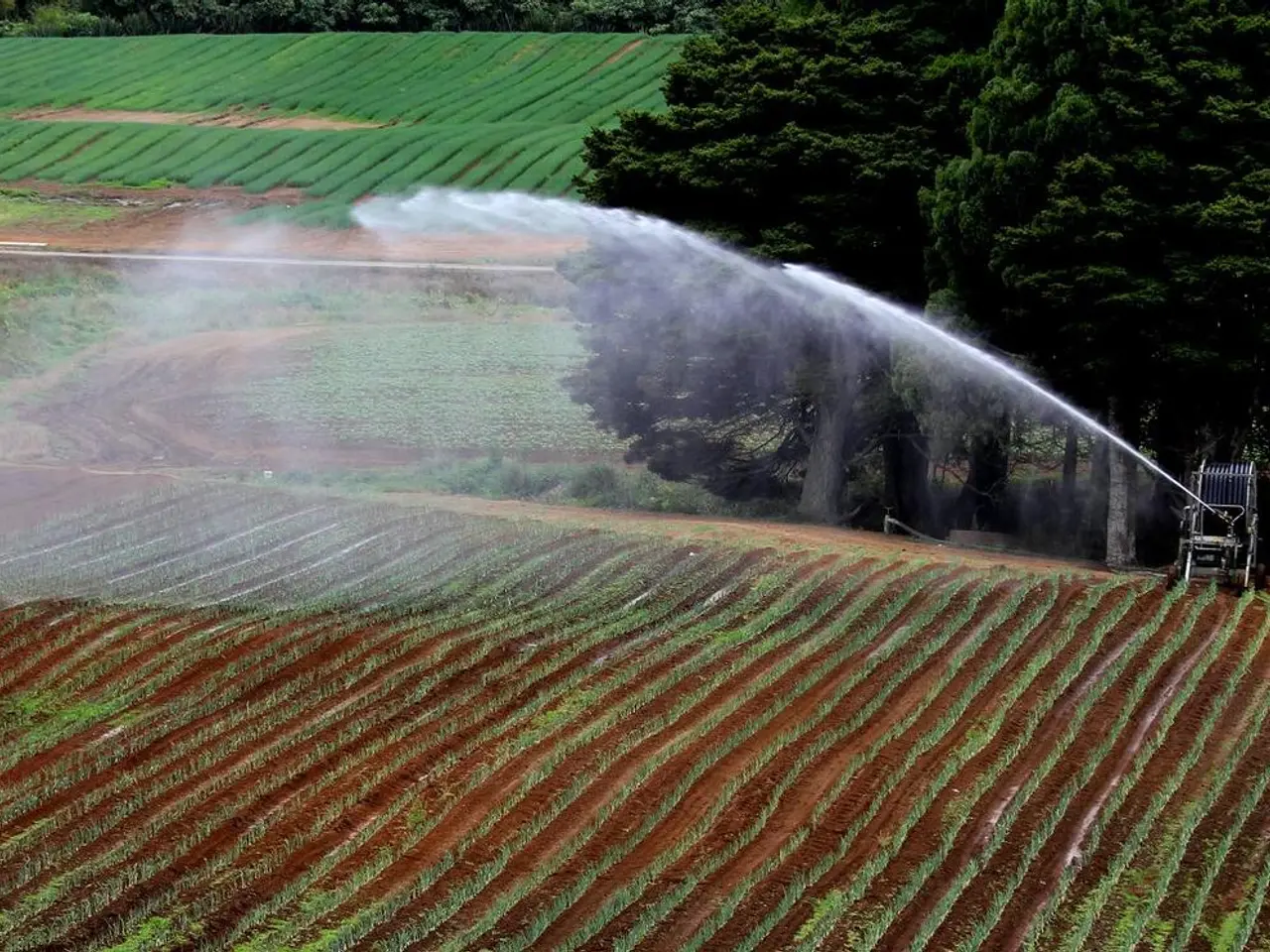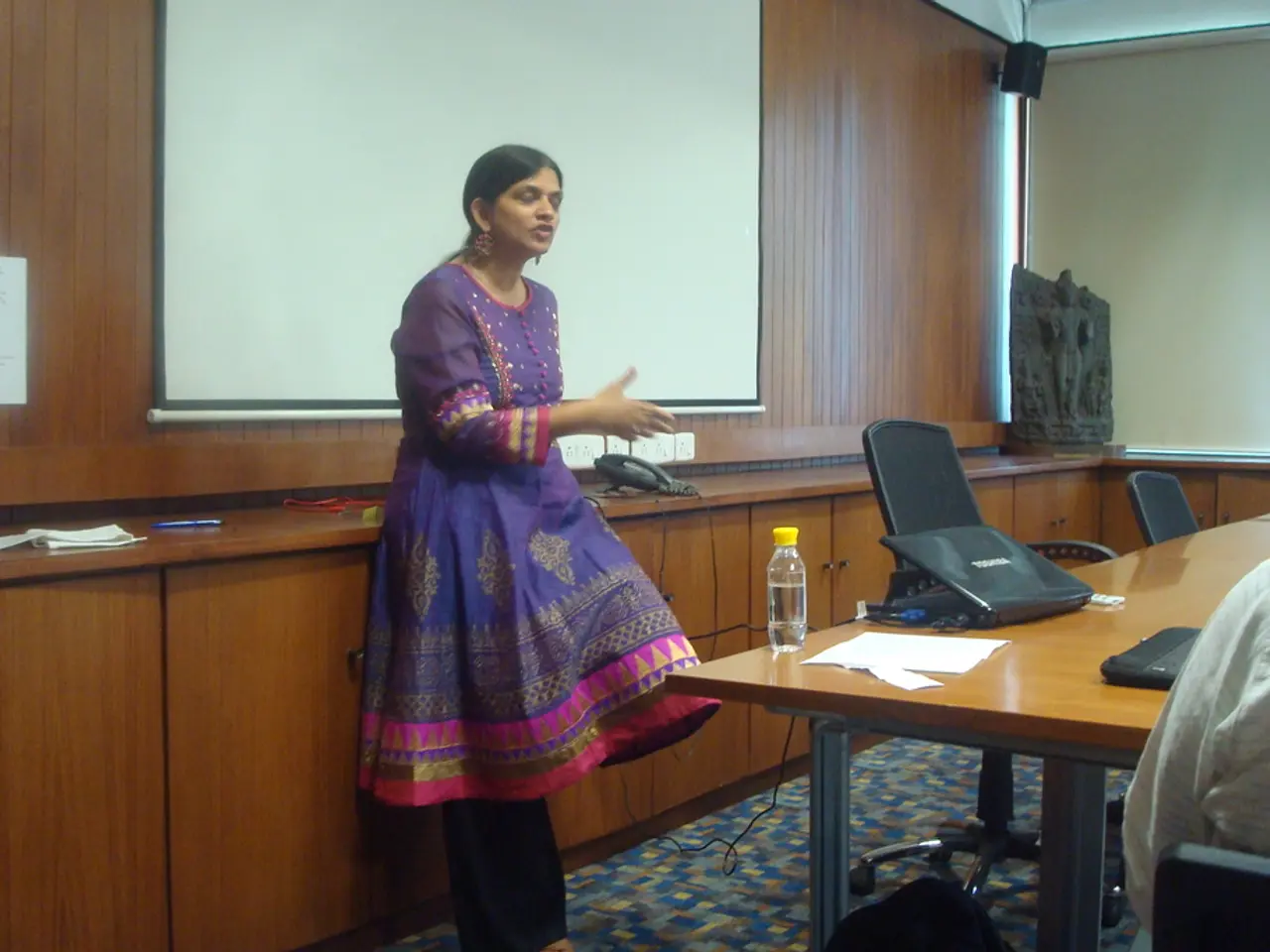Enhancing Mango Farm Watering with the Power of Artificial Intelligence
In the rapidly evolving world of agriculture, a significant shift is taking place in mango farming. The integration of Artificial Intelligence (AI) is transforming the way farmers manage water resources, leading to increased efficiency, sustainability, and profitability.
Remote Monitoring and Data Analysis
At the heart of this revolution is the use of AI systems that gather data from soil moisture sensors, weather forecasts, and plant health indicators. This data is analysed in real-time to determine the optimal irrigation schedule and volume for each part of the farm. By avoiding overwatering and underwatering, these AI systems not only improve crop health but also conserve water resources [2].
Precision Irrigation Techniques
Precision is key in this new approach. Methods such as drip irrigation, controlled by AI, allow for targeted watering directly to the roots of mango trees. This technology minimizes evaporation and runoff losses, significantly improving irrigation efficiency, which can be up to 85-88% more efficient compared to traditional methods [1][2].
Resource Input Management
AI doesn't just manage water; it also optimizes the use of fertilizers and pest control inputs. For instance, in Ultra High-Density Mango Plantation (UHDMP) systems, AI-driven drip irrigation and canopy management help increase water productivity while reducing groundwater extraction in water-stressed areas [1].
Increased Crop Output
By supplying precise water amounts that promote optimal root growth and fruit development without stressing plants, AI irrigation significantly boosts mango yield. Research shows that AI technologies can increase crop productivity by 20% to over 100%, a critical factor in improving returns in mango farming [2].
Environmental Benefits
The environmental benefits of this AI-driven approach are substantial. Efficient water use reduces groundwater depletion and conserves water resources, particularly in regions facing water scarcity. AI's ability to integrate multiple environmental inputs also supports sustainability by minimizing excess water and energy use [1][4].
Predictive Analytics
AI's predictive capabilities extend beyond irrigation. It can use advanced analytics to predict issues such as droughts and pests, enabling proactive measures to be taken [8].
Customized Solutions
Customized AI solutions are developed based on the size and type of land and crop, ensuring that each farm benefits from the most effective irrigation strategy [6].
Adoption and Sustainability Goals
As the demand for mangoes continues to grow, the need for technology to improve production becomes increasingly important. AI-based systems are being adopted to address issues with traditional irrigation methods, setting the stage for a more sustainable and profitable future for mango farming [3].
By aligning with sustainability goals, AI-based technologies in mango farming contribute to resource conservation and waste reduction, aligning with efforts to mitigate climate change [10].
In conclusion, the integration of AI in mango farming is revolutionizing the industry, offering farmers a powerful tool to enhance yield and profitability while preserving critical water resources.
Technology, alongside artificial-intelligence (AI), is employed in AI systems that gather data from soil sensors, weather forecasts, and plant health indicators, transforming mango farmland irrigation. By adopting AI-controlled precision irrigation techniques, such as drip irrigation, farmers can optimize the use of water resources, improve crop health, and conserve water, potentially increasing mango yield by up to 100% and contributing to sustainability goals in mango farming.




